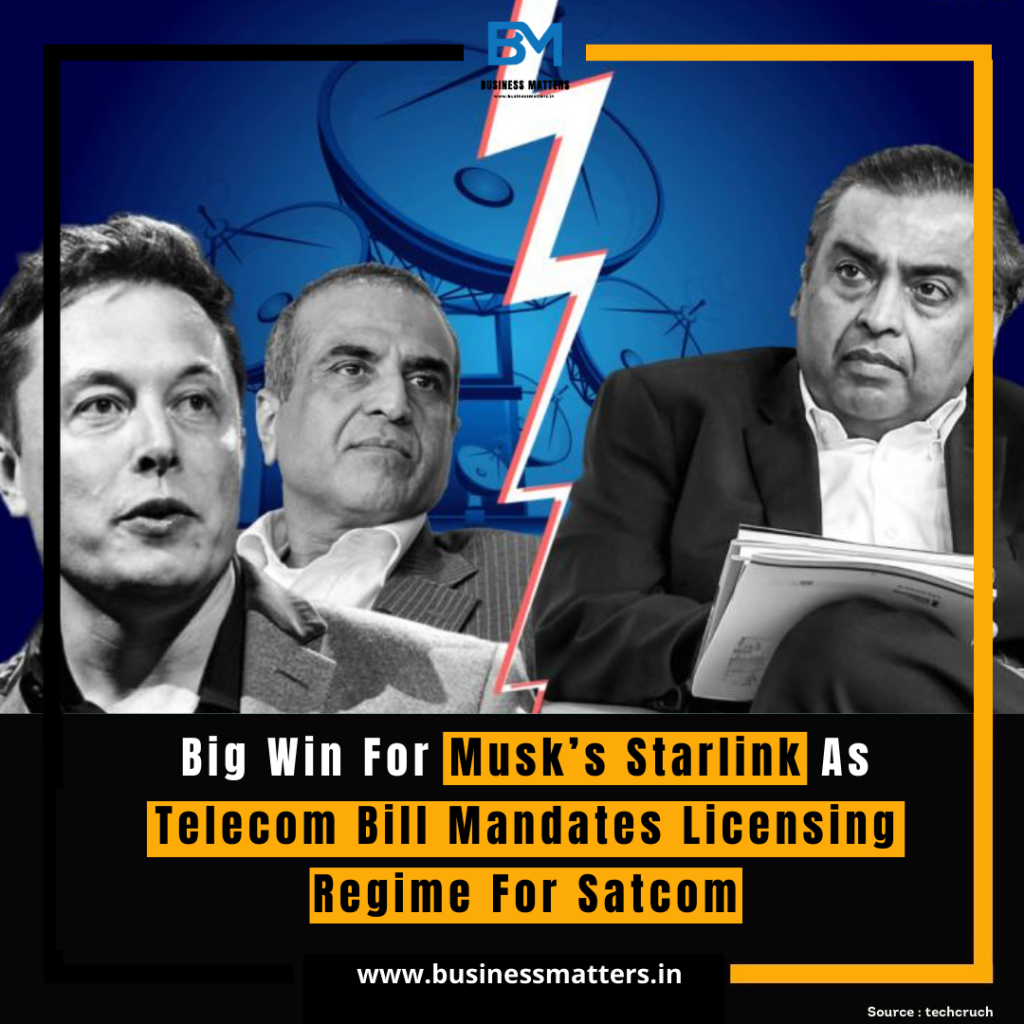As of my last knowledge update in January 2022, I don’t have specific information about a telecom bill mandating a licensing regime for Satcom. However, I can provide insights based on the general context of satellite communication and Starlink, a satellite internet constellation project by SpaceX, led by Elon Musk.
If a telecom bill has been introduced mandating a licensing regime for Satellite Communication (Satcom), it could signify a significant development in the regulatory landscape of satellite-based services. The move towards a licensing regime suggests a formalized and structured approach to overseeing satellite communication services, ensuring compliance with regulatory standards, and managing spectrum allocation.
Elon Musk’s Starlink project, which aims to provide high-speed, low-latency broadband internet access globally through a constellation of satellites in low Earth orbit (LEO), could benefit from such a regulatory framework. Here are some potential implications of a licensing regime for Satcom, particularly in the context of Starlink:
- Regulatory Compliance: A licensing regime would require satellite communication service providers, including Starlink, to adhere to specific regulatory guidelines. This could include standards for satellite deployment, spectrum usage, and overall service quality.
- Spectrum Allocation: Clear regulations around spectrum allocation are crucial for the efficient and interference-free operation of satellite communication systems. A licensing regime would likely address how satellite operators, such as Starlink, can use and share the frequency spectrum.
- Market Entry and Competition: The introduction of a licensing regime might set entry barriers for new players in the satellite communication market. Established players like Starlink, which have made significant investments in satellite infrastructure, could benefit from a regulatory environment that provides a degree of exclusivity.
- Quality of Service: Regulatory oversight can contribute to ensuring the quality of service provided by satellite communication systems. This is particularly important for broadband internet services offered by constellations like Starlink, where low latency and high data speeds are key selling points.
- National Security and Sovereignty: Governments often view satellite communication as a critical infrastructure with implications for national security. A licensing regime could enable authorities to have better control over satellite networks operating within their jurisdictions.
- Consumer Protection: Regulation could also focus on consumer rights and protection, ensuring that users receive the promised quality of service and have recourse in case of service disruptions or other issues.
- Environmental Considerations: Regulatory frameworks may also address environmental concerns related to satellite deployment, space debris management, and sustainable practices.
In conclusion, a telecom bill mandating a licensing regime for Satcom has the potential to bring clarity, structure, and oversight to the rapidly evolving satellite communication industry. For Elon Musk’s Starlink, known for its ambitious plans to provide global internet coverage, navigating and complying with such regulatory requirements would be crucial for its continued success. The details of the bill, its specific provisions, and the industry’s response will ultimately shape the impact of this regulatory development on satellite communication services, including projects like Starlink.


